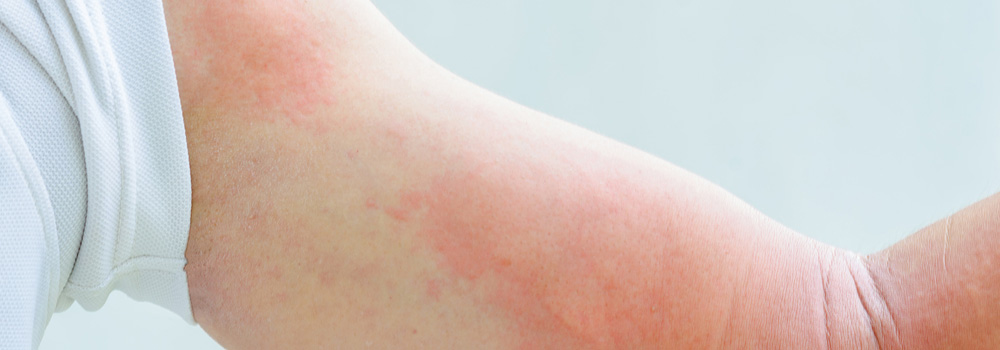Childhood rashes are very common and often nothing to worry about. Most rashes are harmless and go away on their own.
Urticaria or hives is a raised, red, itchy rash that appears on the skin. It can be frightening especially if you don’t know the cause. It happens when a trigger causes a protein called histamine to be released in the skin. Histamine causes redness, swelling and itching, the rash can be limited to one part of the body or spread across large areas of the body. It can sometimes be confused with other types of more serious rashes such as meningitis.
Urticaria is common and can be triggered by many things, including a viral infection. Less often it may be allergens (such as food or latex), irritants (such as nettles), medicines or physical factors, such as exercise or heat. Usually no cause can be identified. The rash is usually short lived and mild, and in many cases does not need treatment as the rash often gets better within a few days. If it is very itchy, a medication called antihistamine usually helps. Creams can help with the itching and are available over-the-counter at pharmacies. Speak to your pharmacist for advice. (See allergies).


